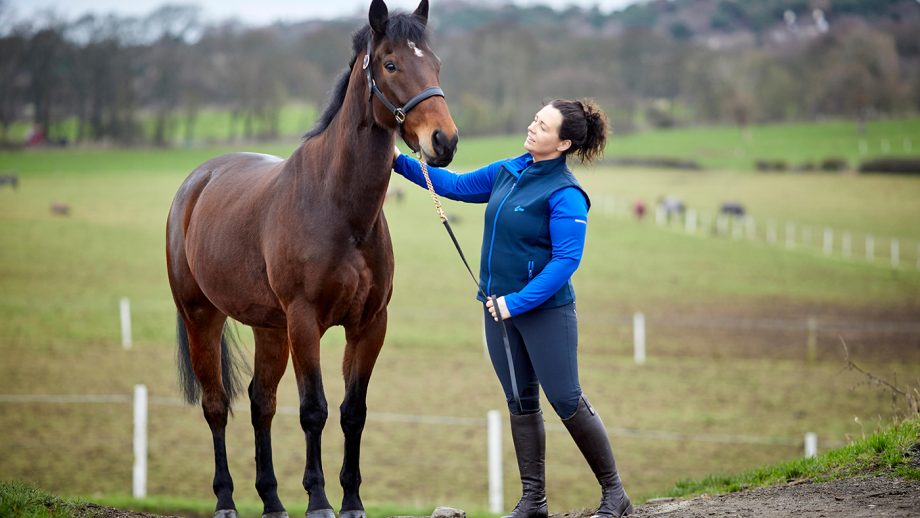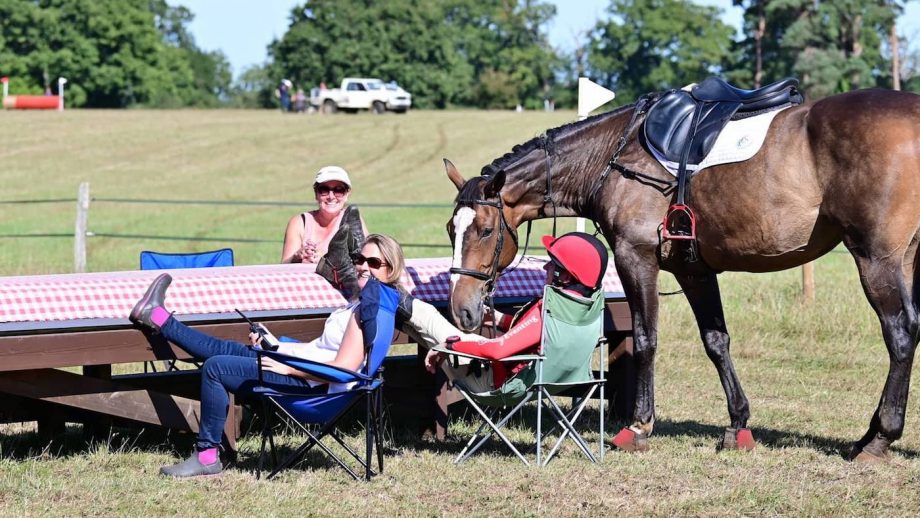As Mental Health Awareness Week gets underway, an new online resource and helpline for equestrians of any ability or level – professional or amateur – has been launched. H&H finds out more about the free service and what else is planned for this week...
A new service to support the well-being of all riders has been launched as part of Mental Health Awareness Week (18–24 May).
Riders Minds is an online resource and helpline for equestrians of any ability or level, professional or amateur, to find help and support.
It has been founded by eventer Matthew Wright and his wife, Victoria, with support from a number of companies, and the British Grooms Association (BGA) and Equestrian Employers Association (EEA) acting as consultants.
Matthew said the aim is to “remove the stigma of speaking out” to increase awareness, understanding and confidence among all riders.
“Having been in a few dark places myself in the past we wanted to give the wider equestrian community somewhere to get help and someone to talk to,” said Matthew.
“By raising the profile of mental health and well-being, people will realise they are not on their own and that it is okay not to be okay.”
In a similar way to the BGA’s Grooms Minds and EEA’s Employers Minds services, the ridersminds.org website offers advice, information on mental health and where to seek help, plus stories on other riders’ mental health journeys.
Funding from TheraPlate has allowed access to a free 24/7 confidential helpline, while money from British Equestrian has increased the capacity for the number of calls the helpline can take.
Liz Daniels, who has been involved in setting up the grooms’, employers’ and riders’ services, told H&H it is important grassroots and amateur riders feel the service is as much for them as it is for professionals.
“The pressures and feelings [associated with riding and competition] are relevant to everyone across all levels,” she said. “It is all relative and it doesn’t matter if it is you’re thinking about your first competition or your first Badminton, your feelings are still valid.”
She added stresses and worries from other areas of life can manifest themselves through people’s hobbies.
“Riders Minds is a brilliant platform, it’s free for everybody across all levels to get support, and the helpline will be invaluable for people to realise they are not on their own and can talk to somebody without feeling judged,” she said.
The social enterprise project has also been sponsored by Baileys Horse Feeds, Bates Saddles and Caunton Manor Stud and is recognised by British Dressage, British Showjumping, British Eventing, the British Horse Society, the Pony Club and Horsescotland.
Kindness
The Mental Health Foundation changed the focus for the 2020 Mental Health Awareness Week (18–24 May) from “sleep” to “kindness” in response to the coronavirus pandemic.
In a survey of 4,256 UK adults as part of the charity’s “Coronavirus: Mental Health in the Pandemic” research project, 72% said it is important we learn from the pandemic to be kinder as a society and 63% said both kindness directed towards them and being kind to others have a positive impact on their mental health.
Data from the survey also found those already unemployed are the most seriously affected, but that there is “concerning evidence” for the employed, including 34% of adults in full-time work worried about losing their jobs.
“Our research is starting to reveal how the financial and employment inequalities caused and exacerbated by the pandemic are affecting people’s mental health,” said Mental Health Foundation director Antonis Kousoulis. “We have very concerning evidence that many millions of people in the UK are worrying about fundamental financial matters and job security – both of which are closely linked to poor mental health.”
Writing for the National Trainers’ Federation, Will MConn-Palfreyman, of Sportscotland Institute of Sport and former lead researcher in the school of sport and exercise at Liverpool John Moores University, cited how industry support is vital.
He summarises that the psychological strain of how much a person’s identity is tied to their role of a sportsman, with financial worries and juggling family relationships, are likely to all have an impact.
Charity Racing Welfare is undertaking “7 days of kindness” as part of Mental Health Awareness Week, publishing case studies and advice on subjects including helping others, mental health first aid training, self-care and combating loneliness.
Simone Sear, director of welfare at Racing Welfare, told H&H: “Financial assistance and benefits support are the issues that sit highest in people’s consciousness from those who have contacted us.
“We know that financial pressure is a possible cause of stress and anxiety and as such we have taken a proactive approach to tackling this issue.”
She added the charity has streamlined its application process to provide hardship grants for those in need of immediate financial support for basic essentials and has also taken its regular social events online.
“It is well documented that social isolation and loneliness can lead to poor mental health, and we are proactively addressing this risk by undertaking a huge number of outbound calls to our most vulnerable beneficiaries,” she said.
“To date, we have made 1,100 check-in calls to over 700 people in this category since 16 March, in addition to calls to trainers, studs and other businesses to ensure they, and all their people, are ok.”
You may also be interested in…

Plans to lobby parliament on the mental health benefits of horse ownership *H&H Plus*

#buddydontbully: online campaign aims to combat nastiness in the equestrian community
‘Horses are so emotionally draining – we put so much into them; our health, money, time, everything, and we should

‘It’s OK not to be OK’: top riders speak out on World Mental Health Day

New company aims to support grooms’ mental health
‘Although a lot of grooms do it out of love for the job, it takes its toll’

‘People suffer in silence’: coach hopes to shine light on eating disorders in equestrianism
‘If people can help identity eating disorders then we can let people know they’re not alone – and that applies

